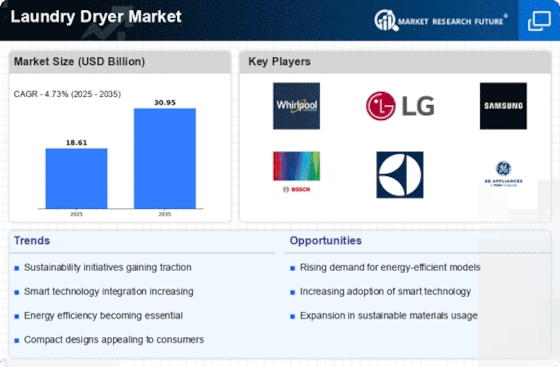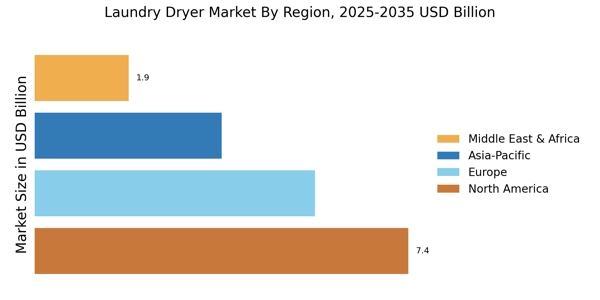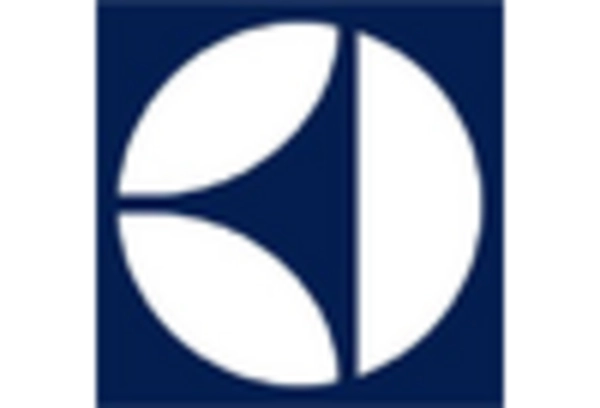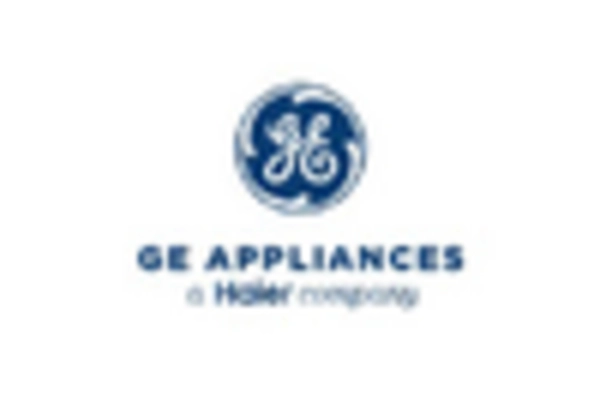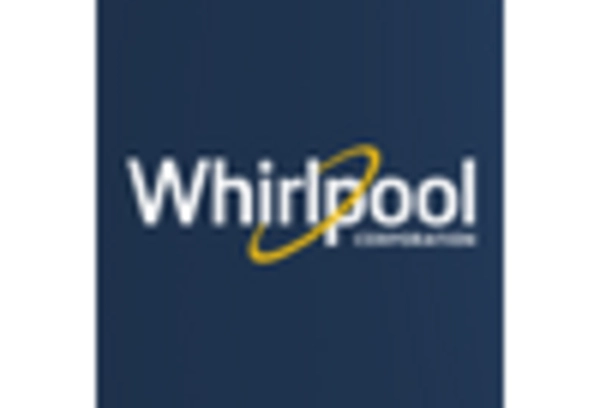Rising Urbanization
The ongoing trend of urbanization appears to be a pivotal driver for the Laundry Dryer Market. As more individuals and families relocate to urban areas, the demand for efficient home appliances, including laundry dryers, is likely to increase. Urban living often entails limited space, making compact and efficient laundry solutions more appealing. According to recent data, urban populations are projected to rise significantly, which could lead to a corresponding increase in the adoption of laundry dryers. This trend suggests that manufacturers may need to focus on developing models that cater to the needs of urban dwellers, emphasizing space-saving designs and energy efficiency. The Laundry Dryer Market may thus experience growth as urbanization continues to shape consumer preferences.
Technological Advancements
Technological advancements are reshaping the Laundry Dryer Market, with innovations enhancing user experience and efficiency. The integration of smart technology, such as Wi-Fi connectivity and app control, is becoming increasingly prevalent. These features allow users to monitor and control their dryers remotely, providing convenience and energy savings. Market data suggests that smart appliances are expected to capture a significant share of the market, as consumers seek more integrated home solutions. This trend indicates that manufacturers must prioritize technological innovation to remain competitive. The Laundry Dryer Market is likely to evolve as these advancements become standard, catering to a tech-savvy consumer base.
Increased Disposable Income
The rise in disposable income across various demographics is likely to bolster the Laundry Dryer Market. As consumers experience improved financial stability, they are more inclined to invest in home appliances that enhance their quality of life. Market data indicates that regions with increasing disposable income are witnessing a surge in demand for premium laundry appliances, including high-efficiency dryers. This trend suggests that manufacturers may benefit from targeting affluent consumers with advanced features and superior performance. The Laundry Dryer Market could see significant growth as disposable income levels rise, enabling more households to purchase modern laundry solutions.
Changing Consumer Lifestyles
Shifts in consumer lifestyles are driving changes in the Laundry Dryer Market. With an increasing number of households prioritizing convenience and time-saving solutions, the demand for laundry dryers is on the rise. Busy professionals and families are seeking appliances that can streamline their daily routines, making dryers an essential component of modern living. Market data shows that households with dual-income earners are more likely to invest in laundry appliances, including dryers, to manage their time effectively. This trend suggests that manufacturers should focus on marketing strategies that highlight the convenience and efficiency of their products. The Laundry Dryer Market may continue to grow as consumer lifestyles evolve.
Sustainability and Environmental Concerns
Growing awareness regarding sustainability and environmental issues is influencing consumer choices in the Laundry Dryer Market. As individuals become more conscious of their ecological footprint, there is a noticeable shift towards energy-efficient appliances. The market data indicates that energy-efficient dryers can reduce energy consumption by up to 50%, appealing to environmentally conscious consumers. This trend is likely to drive manufacturers to innovate and produce models that not only meet energy standards but also utilize sustainable materials. The Laundry Dryer Market may see an increase in demand for products that align with eco-friendly practices, as consumers seek to balance convenience with environmental responsibility.


